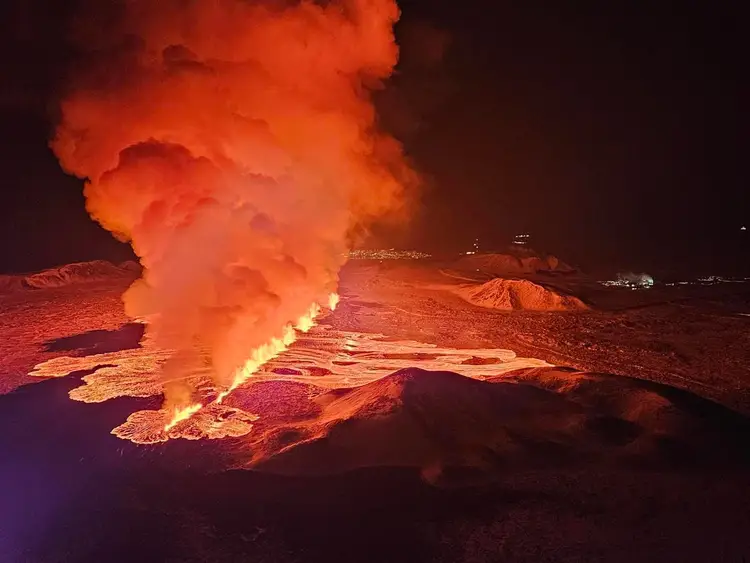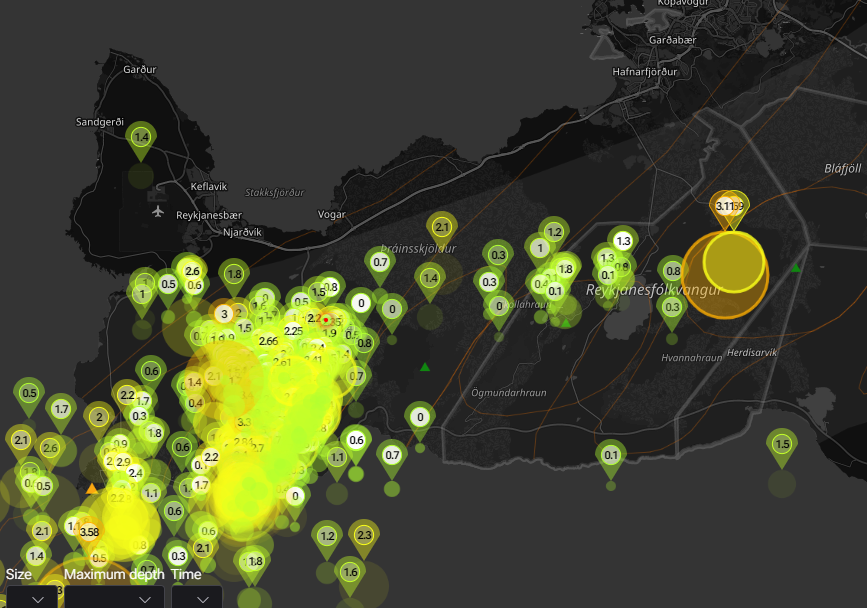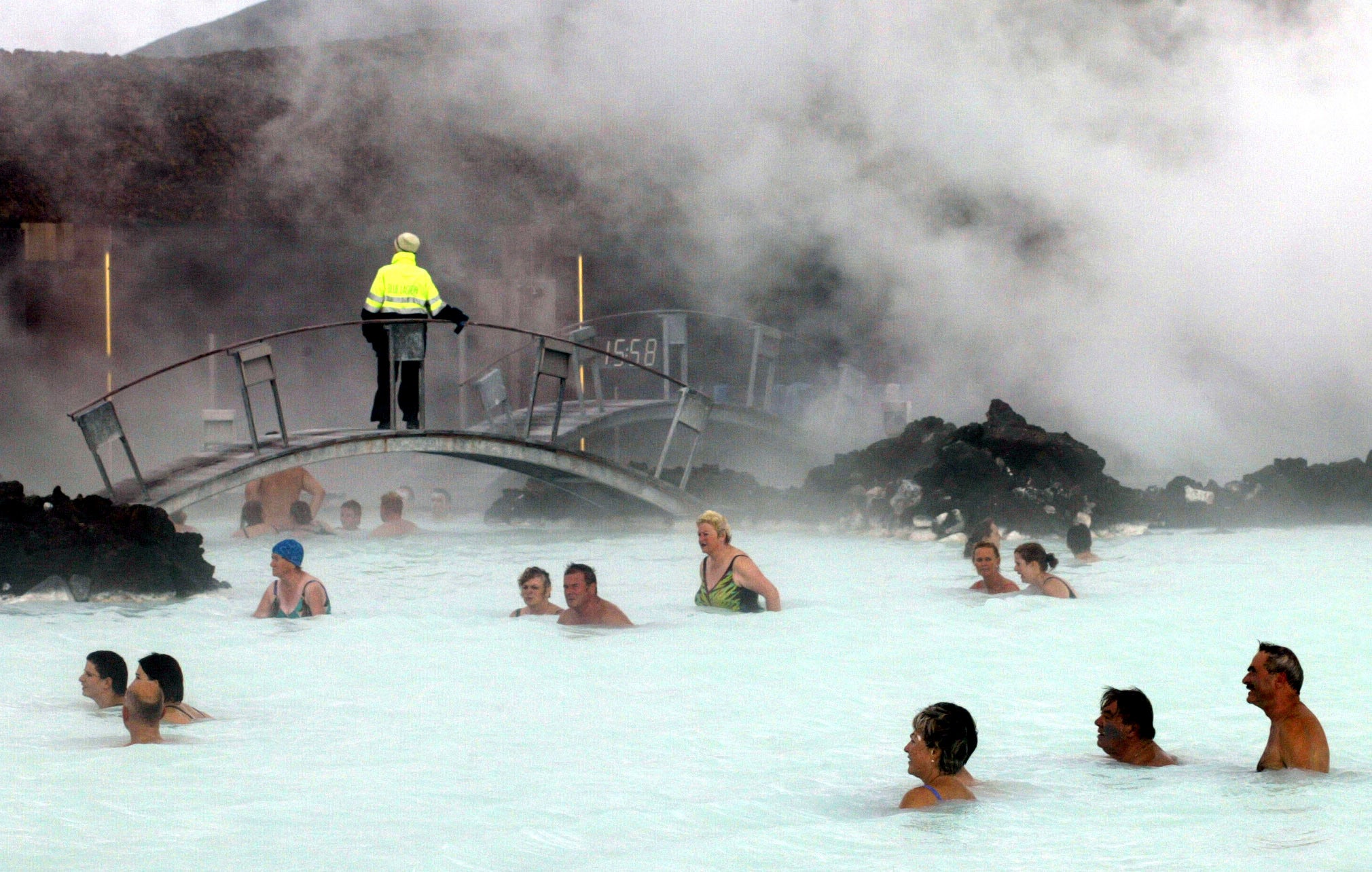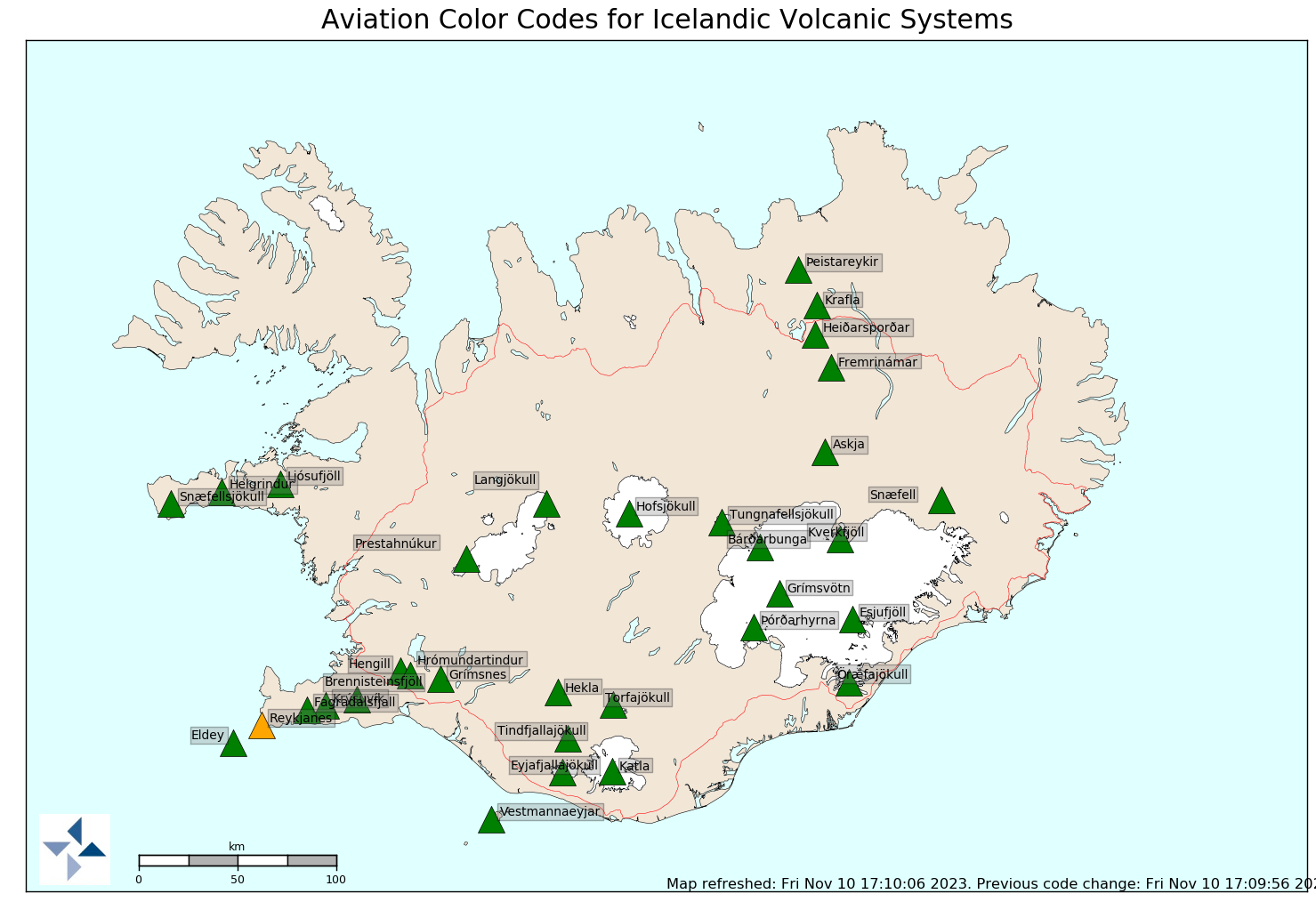Is it safe to travel to Iceland after volcanic eruption?

Join Simon Calder's Free Travel Tips And Deals
Subscribe To Simon Calder’s Travel Emails
Subscribe To Simon Calder's Travel Newsletter
I would like to receive emails regarding special offers, events, and updates from The Independent. Please take a look at our privacy policy.

Iceland is currently experiencing significant geological activity. Since November 2023, officials in Iceland have been keeping a close watch on the earthquakes occurring in the Reykjanes Peninsula, which is located to the southwest of Reykjavik.
The most recent eruption started shortly before midnight on November 20, 2024, featuring a crack that stretched three kilometers long.
According to Iceland's Department of Civil Protection and Emergency Management, the lava flow's boundary is located about a few hundred meters away from Grindavíkurvegur, also known as Lava Road.
The town of Grindavik, located nearby, has been evacuated once more, along with the adjacent Blue Lagoon spa.
The Blue Lagoon announced: "In light of the volcanic eruption that began in Sundhnúksgígar on November 20, we have decided to evacuate and temporarily shut down all our facilities as a safety precaution. The Blue Lagoon will remain closed until Sunday, November 24, when we will evaluate the situation again."
The Foreign Office has issued a warning stating, "There have been multiple volcanic eruptions on the Reykjanes peninsula in southwestern Iceland recently, with the most recent one occurring on November 20."
"The town of Grindavik and the nearby northern region have been impacted. However, Keflavik International Airport and the route leading to it are functioning normally and remain untouched. The capital, Reykjavik, along with the rest of Iceland, is not experiencing any effects from the recent eruptions."
More eruptions could happen in this area in the future. The Icelandic government keeps a close eye on seismic and volcanic activity, and they've built strong infrastructure to withstand these challenges. However, not all incidents can be predicted, and they may impact your travel plans. This includes potential delays or cancellations caused by rockfalls, landslides, unexpected flooding, or harmful volcanic gases near eruption sites.

Here are the main questions and answers regarding consumer rights.
"Am I Stuck In Iceland? Can I Leave?"
Certainly! Provided the international airport stays operational, Isavia, the organization managing Keflavik, stated, "The airport is functioning completely. Recent volcanic eruptions haven't affected flights, and they are keeping to their planned schedules."
You might be eager to leave sooner than your scheduled flight to ensure your trip goes smoothly, but right now, you won't be able to change your flight without incurring a fee.
The FCDO recommends that travelers look into these resources for the latest information:
Did An Icelandic Volcano Ground European Flights?
Absolutely. Many travelers can recall their whereabouts in April 2010 when the Eyjafjallajokull volcano in Iceland erupted. This event led to a total shutdown of passenger flights across northern Europe for nearly a week.
About 250 million cubic meters of volcanic ash were released and blown southeast toward the UK and continental Europe by the wind. There were concerns that the ash could harm jet engines, posing a risk to aircraft safety. This led to the largest disruption in air travel since World War II, resulting in the cancellation of 50,000 flights and affecting the travel plans of 8 million passengers.
Over 50,000 flights were called off, affecting eight million travelers who had made reservations.
However, ash has not posed a problem during the current geological eruption.
Fortunately, the situation is quite different this time. Eyjafjallajokull erupted while covered by a glacier. As the ice melted, it caused the lava to cool rapidly, breaking it into small pieces. These tiny fragments were quickly shot into the air, reaching altitudes of 30,000 feet, thanks to the steam generated during the eruption.

The ongoing eruption is not producing similar effects. The lava will solidify and stay on the surface.
Moreover, following the 2010 eruption, new regulations were introduced permitting planes to operate when there are low levels of volcanic ash. When another Icelandic volcano erupted in 2011, only 1 percent of flights in northern Europe were affected, a significant reduction compared to the total flight cancellations experienced during the previous crisis.
What To Do If You're On A Package Holiday?
The advice from the Foreign Office does not go as far as recommending that travelers avoid going to Iceland. As a result, travel companies can keep running their operations as usual, and customers do not have an automatic option to cancel their trips.
As long as the Foreign Office hasn't issued a travel warning, it's generally believed that everything will proceed as usual.
The only exception applies to travelers who intended to spend their time at the Blue Lagoon, which has become a sought-after wellness retreat featuring a luxurious hotel on the premises.
Only guests who had reservations for a stay that can no longer happen are allowed to cancel. If you were planning to visit for a day to relax in the hot springs, you will need to plan a visit for another time in the future.
Am I Eligible To Make An Insurance Claim?
No, unless you have one of the extremely uncommon "cancel for any reason" policies. With regular travel insurance, simply not wanting to travel is not a valid reason to make a claim.
Would You Visit Iceland Right Now?
Absolutely, I'd welcome the chance. The Icelandic government is highly skilled at managing seismic activities, boasting excellent monitoring and emergency response systems.
I’d consider booking a vacation package, but I would make sure I could get a complete refund if the situation around me became too shaky for my liking.
It's possible that the latest eruption could turn into an attraction all on its own, similar to what has happened with others in the past.



















































